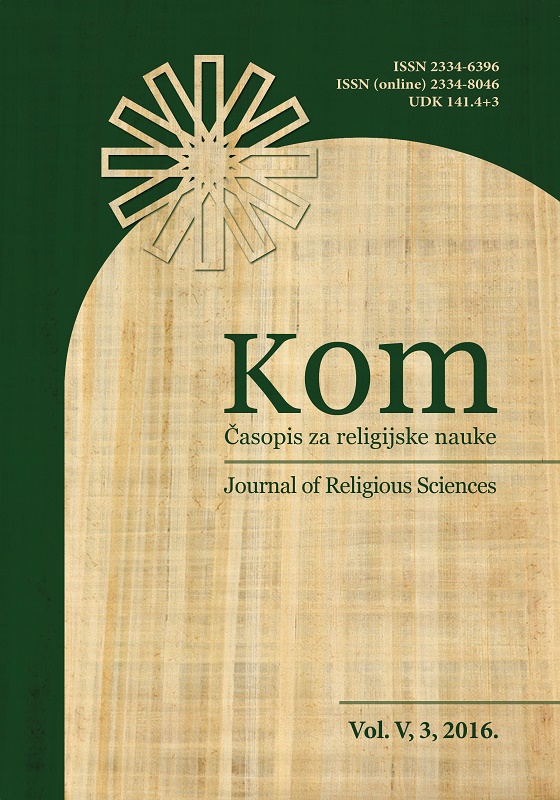Filozofija i religija, dva temelja socijalne misli društva Ihvanu safa
Philosophy and Religion, Two Foundations of Social
Thought of the Ikhwan al-Safa Society
Author(s): Muamer HalilovićSubject(s): Cultural history, History of ideas, Political history, Philosophy of Middle Ages, Middle-East Philosophy, Politics and religion, History of Islam
Published by: Centar za religijske nauke "Kom"
Keywords: Ikhwan al-Safa; social philosophy; society; division of labour; models of society; geography; politics; religion
Summary/Abstract: In the X century, when numerous representatives of scientific and cultural life of Muslims appeared, a secret philosophical-political group Ikhwan al-Safa was formed whose members tried to ideologically oppose the central caliphate leading political set. Believing that it is imperative that Muslim society should move towards ideals established back in the VII century the prophet Muhammad, and that Umayyad and Abbasid Caliphates did not advocate those ideals, they tried in their works – published under the name of Rasa’il Ikhwan al-Safa (Epistles of the Brethren of Purity) – to clarify in detail their philosophical, social and political attitudes. The Epistles is an encyclopaedic review of almost all previously known scientific disciplines. They are 51 or 52, if we count the last one that offers a short overview of all the previous ones. In their Epistles, the Ikhwan al-Safa representatives wrote about a variety of scientific disciplines, such as philosophy, physics, astronomy, mathematics, geometry and music. Still, they did not neglect social sciences, and they extensively discussed the relationship between man and society, the role of government in the community, the issues of social justice, of bliss, the relationship between politics and religion, social life models, and many other topics. In this article we will try to look at the basic features of their social thought. It should be noted that the views of this group representatives significantly influenced the development of various scientific disciplines in Islam, and the way they worked had an impact on many theological branches such as Ismaili Muslims. In fact, in the Ismaili fortresses of Gazarhan, Lambasar, Shahdej, Tabas, and Qohestan, many historians have noted traces of covert activities of the Ikhwan al-Safa group members.
Journal: Kom: časopis za religijske nauke
- Issue Year: V/2016
- Issue No: 3
- Page Range: 37-65
- Page Count: 29
- Language: Serbian

